Egg Tips| Egg Substitutions
Egg Tips
Scrambled Eggs
Scrambled eggs may turn slightly green when cooked at too high a temperature or when the eggs are allowed to sit in the pan for long periods. To help prevent "green scrambled eggs," don't overcook the eggs, and always serve the eggs when still moist. Do not hold the eggs in the pan for long periods. If the eggs must be held for a while before serving, don't leave the pan directly on the burner of the stove; rather, place the pan inside another pan containing warm water to keep the eggs heated. |
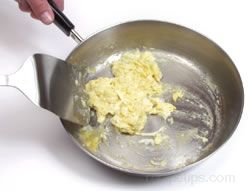 |
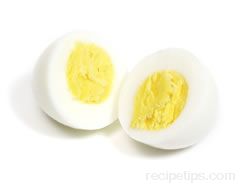
|
Hard-Cooked Eggs
If your hard-cooked eggs happen to become mixed up with uncooked eggs, it is easy to figure out which is which. When you spin an egg on its side on a flat surface and it does not wobble, it is an indication that the egg is hard-cooked. |
Poached Eggs
Adding a bit of vinegar to the poaching water will help set the eggs more quickly, creating a pleasing shape. This also helps to prevent streamers of egg white from moving outward from the egg while it is being cooked. |
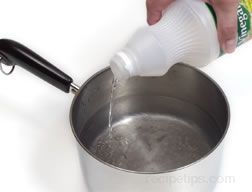 |
Egg Substitutions
Substituting Egg Whites
for Whole Eggs
It may not be possible to substitute egg whites for whole eggs in some baked recipes because the results will be substandard; but it is possible to use only egg whites in a number of other egg dishes, such as scrambled eggs or omelets, which will eliminate the cholesterol. |
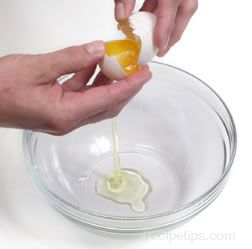 |
|
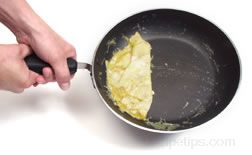
|
Omelets
When making omelets or scrambled eggs, use two egg whites and two whole eggs to create the same volume as three whole eggs. This allows you to enjoy egg yolks while cutting back on the cholesterol level. |
Raw or Partially Cooked Eggs
Traditional recipes that call for raw or partially cooked eggs may benefit from the use of egg substitutes, such as egg white substitutes, meringue powder, or pasteurized whole eggs. The risk of bacterial contamination is greatly reduced with the use of these products. |
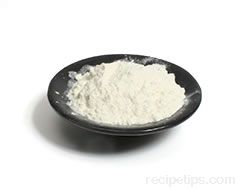 | |






